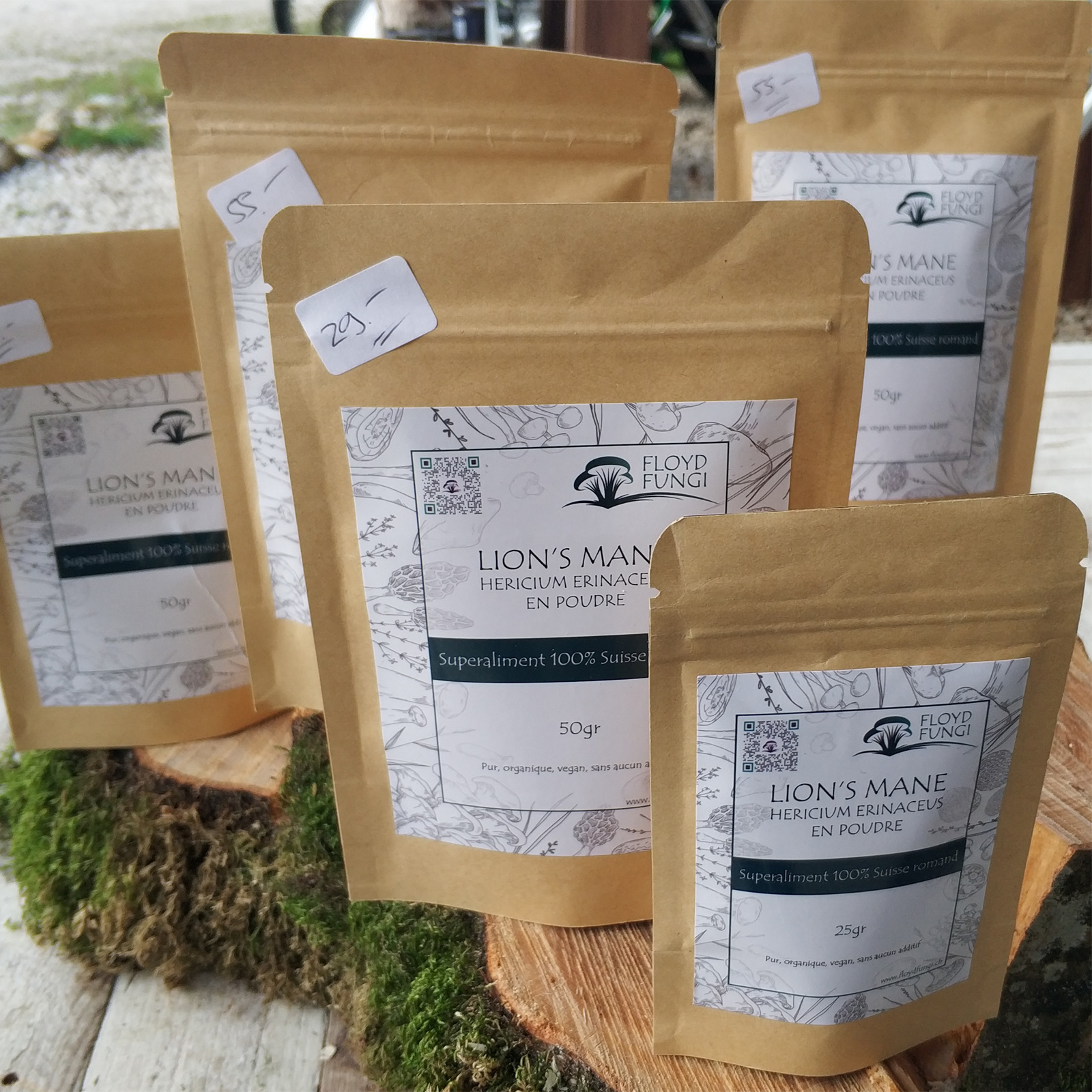Functional Mushrooms
We all know edible, poisonous, or even psychoactive mushrooms, but what does “functional mushroom” really mean?

History
The term “functional foods” was first coined in Japan in the early 1980s. These concepts overlap with “superfoods” or “medicinal mushrooms. « While the latter term is legally accepted in many countries, we strictly follow the Swiss regulatory framework for food products. »
Today, functional foods are considered “enriched” thanks to improved nutritional profiles that provide health benefits beyond simply supplying essential nutrients (fats, carbohydrates, proteins, vitamins, and minerals) when consumed in normal amounts as part of a varied and regular diet.
Japan was also the first country to develop a specific regulatory approval process for functional foods. The term “Foods for Specified Health Use” (FOSHU) was created and established in 1991. This concept quickly spread around the world.
Internationally, there is great variability in the regulation of functional foods. Legislators’ approaches can range from total disinterest to meticulous scrutiny, and sometimes one wonders if it is really the consumer being protected.
Definition of “Functional”
Selon la définition de l’EFSA (Autorité européenne de sécurité des aliments) :
“Functional foods are foods that, in addition to their basic nutritional effects, have a proven beneficial effect on health or the reduction of disease risk, either through a specific composition and/or an increased content of certain components, or through the modification of their composition or structure.”
The last sentence suggests that these are primarily processed products. Swiss legislation, managed by the FSVO (Federal Food Safety and Veterinary Office), currently focuses on the strict regulation of these claims to protect the consumer.


Our Approach to “Functional”
We have great respect for traditional medicines, the result of meticulous testing and observation over generations of practitioners, whether Chinese or shamanic, which have inspired all modern scientific studies on this subject.
Nevertheless, our approach to “functional” is based on the scientific studies available today. These are most often conducted “in vitro” (on cell cultures) or “in vivo” (on animal models), which only allows for extrapolation to humans.
In some cases, clinical trials provide more information on the real effects of these mushrooms, but they are still too rare due to lack of funding.
All these results, as well as the recent enthusiasm of scientists and industry for mushroom-based functional products, seem to prove that we are far from “snake oil,” as grandma would have said with a smile.
With a scientific background, it is natural that the functional aspect of these mushrooms has fascinated us, alongside their limitless and playful gastronomic interest.
Functional at FloydFungi
Cultivating our own mushrooms, from mycelium to fruiting body, using a 100% organic and local process, we offer only natural products, such as mushroom powders, and soon mother tinctures and aqueous and/or alcoholic extracts, for those who prefer a more concentrated product or have difficulty digesting mushroom fibers.
Currently, we only offer Hericium powder and Grey Oyster powder in 50 and 100 g sachets at our markets or here online.
In Swiss law, functional mushrooms are classified as food products, not food supplements as in the EU. Therefore, we strictly comply with Swiss food regulations, offering only varieties officially authorized for the market.

